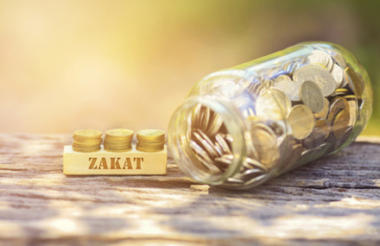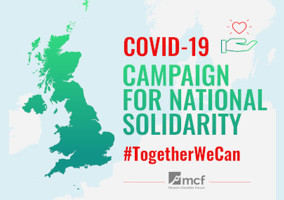As we approach the end of another Ramadan, there is much to be learnt for Muslim-led charities once again. Covid-19 has continued to alter the fundraising landscape and this Ramadan is the second one during which restrictions have applied.
Although the UK’s third lockdown is slowly easing, the holy month of Ramadan (from 12 April to approximately 13 May) as defined by fasting, prayer and charitable giving, has meant reduced physical activities for charities once more.
For Muslim-led charities, Ramadan is the peak fundraising time with as much as 40% of some charities' annual fundraising being received in this month alone, pre-Covid. This year, just as in 2020, Ramadan has been different for the Muslims observing the month, as well as the charities who rely upon religious giving of Zakat (compulsory annual giving of 2.5% of assets) and Sadaqah (voluntary, unrestricted giving). With face-to-face activities still out of the question and many mosques closed or operating in reduced capacity, the usual vital collections were unable to happen.
For many charities, the changed circumstance has led to an increase in digital fundraising. Whether via email, crowdfunding campaigns, social media or WhatsApp messages, many have been forced to move more into the digital arena in order to survive. For the large INGOs this isn’t an issue – digital fundraising has been at the forefront for many years. For smaller charities, including those newly established or volunteer-run, online giving is an area where the relevant skills and practice may be lacking.
Donor awareness has increased
This focus on online giving has opened the door to bringing in vital funds and has kept many charities from going under. However, the shift in the last 10 years towards younger donors dominating the Muslim charitable giving landscape has also brought questions. The rise of social media, increased religious identity and more disposable income for those aged 40 or below has resulted in a change in attitudes towards donating.
Each year, messages and articles circulate questioning the transparency and practice of Muslim charities who promise 100% donation policy. Questions often arise around admin fees deducted from donations, even though this is often openly discussed by charities themselves, as well as the use of Gift Aid and, of course, aid delivery. Muslim donors want to understand more about the workings of Muslim-led charities to safeguard their donations which hold huge spiritual and personal significance.
Muslim-led INGOs and NGOs are challenged and trying their best like the rest of the sector to operate professionally, efficiently and transparently and embrace these questions in open dialogue with a shift towards donor discussions and becoming more user-led. However, for some, there has been an over-reliance on donors giving in “blind faith” – particularly during Ramadan when spiritual reward is high, and time is short. This act of giving for the sake of God means that some not-for-profits have capitalised on donors not asking questions, taking full control in the relationship between donor and charity.
Safeguarding generosity is important
Because Ramadan is such a significant spiritual time, donations during this month increase significantly. A report by Muslim Charities Forum in 2018 showed that British Muslims gave a staggering £130m in donations during the 30-day period, with many Muslims making donations almost every single day.
This Ramadan, as in the previous two years, we have been running our Give Smart and Give Safe campaign to educate donors about the increased importance of checking where their donation is given. All through this month we have been encouraging donors to check the Charity Commission website, the organisation’s impact and verifying information shared with them via personal channels. The MCF guide helps donors think objectively about where their money is going to ensure that their donations are protected and that, crucially, those in need really do benefit from their help.
The shift in the Muslim sector towards donors taking control and having more awareness is an important step in embracing best practice both professionally and spiritually. Islam defines the process of distribution of Zakat formally, with clear categories for donor and beneficiary, as well as an emphasis on fair and open business transactions in all areas. To gain more understanding of the shift in donor awareness and to support this, Our Donor and Volunteer Survey is currently open to gather more information about the causes and issues that matter most to Muslim donors and volunteers.
We must continue to keep the momentum going
Past Eid (the celebration markings the end of Ramadan), through 2021 and beyond, the trends and behaviours of this blessed month must continue. This is the dawn of a new era in the charity sector, post-Covid19, post-Ramadan and there is much positivity and learning to be gained despite the hardships.
For charities, Covid-19 has had a devastating effect, and it is important that funds are recovered, and income diversified to keep going. Feedback and impact monitoring to donors must continue to maintain regular and loyal support in an increasingly donor-led arena.
For donors, heightened awareness and proactivity towards charitable causes is vital – Covid-19 has not been kind. Too many people are in even more desperate need of help right here in the UK and elsewhere. Charities themselves are struggling due to Covid and need support, including in areas of admin fees. Understanding the bigger picture of bringing about true, long-lasting and sustainable change for those in poverty means supporting those who are on the ground working too.
Good charitable practice and effective, informed donation decisions can make a difference. By pulling together, charities and donors, we all stand a chance of recovering and improving the lives of those who have been most severely impacted by the pandemic.
Fadi Itani is chief executive of the Muslim Charities Forum
Related articles












